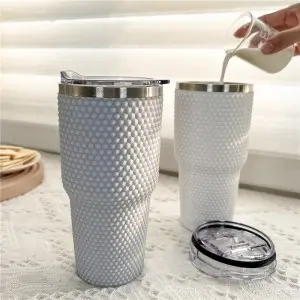As awareness of environmental issues grows, the need for sustainable practices in all aspects of our lives becomes more apparent. While recycling paper, plastic, and glass has become second nature to many, there are areas where confusion remains. One of them is empty medicine bottle disposal. In this blog, we take a deep dive into the question of whether empty medicine bottles can be recycled. Let’s explore this topic to promote a greener and more responsible approach to pharmaceutical waste management.
Body:
1. Understand the material of the medicine bottle:
Most medicine bottles are made of plastic, usually polypropylene or high-density polyethylene. The materials are recyclable, meaning empty pill bottles have the potential to get a second life. However, there are several factors to consider before tossing them in the recycling bin.
2. Remove the label and childproof cap:
Labels and child-resistant caps must be removed from empty containers during most recycling processes. While the components themselves may not be recyclable, they can often be disposed of separately as general waste. To make medicine bottles easier to recycle, remove all labels and dispose of them properly.
3. Local recycling guidelines:
Recycling practices and regulations vary by region. Before recycling empty medicine bottles, it is crucial to check your local recycling guidelines. While some cities accept plastic pill bottles, others may not. Familiarize yourself with the specific rules in your area to ensure your recycling efforts are effective.
4. Alternative recycling options:
If your local recycling program does not accept empty medicine bottles, there may be other recycling options. Some pharmacies and hospitals have programs where you can throw away empty medicine bottles for proper recycling. Check with your local pharmacy or healthcare provider to see if they participate in such initiatives.
5. Reuse vials:
Empty medicine bottles can also be reused rather than recycled. Often sturdy and child-safe, these containers can be used to store small items like buttons, beads or even travel-sized toiletries. By reusing your vials, you extend their life and reduce waste.
6. Proper Medication Disposal:
Whether or not you can recycle your vials, it’s critical to prioritize proper drug disposal. Expired or unused medications should never be flushed down the toilet or thrown in the trash as they can contaminate water supplies or harm wildlife. Check with your local pharmacy or council for drug take-back programs or special disposal instructions in your area.
While the recycling of empty medicine bottles may not be universally feasible due to varying recycling guidelines, it is important to explore alternatives and advocate for greener drug disposal practices. By removing labels, checking local recycling guidelines, and considering reuse or alternative recycling programs, we can take small but important steps towards a more sustainable future. Let us all contribute to reducing drug waste and protecting the environment through responsible disposal of pill bottles.
Post time: Jul-29-2023
